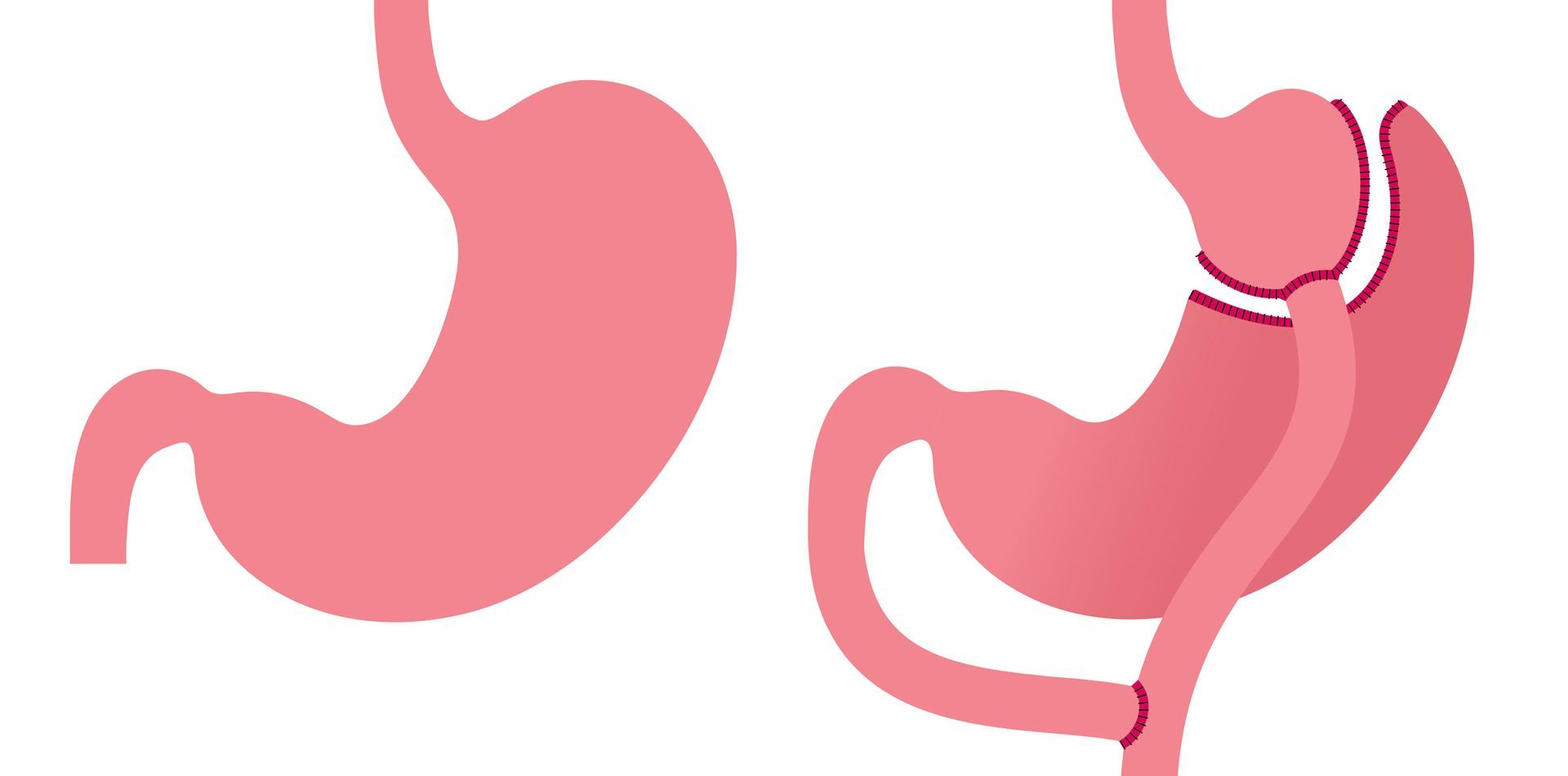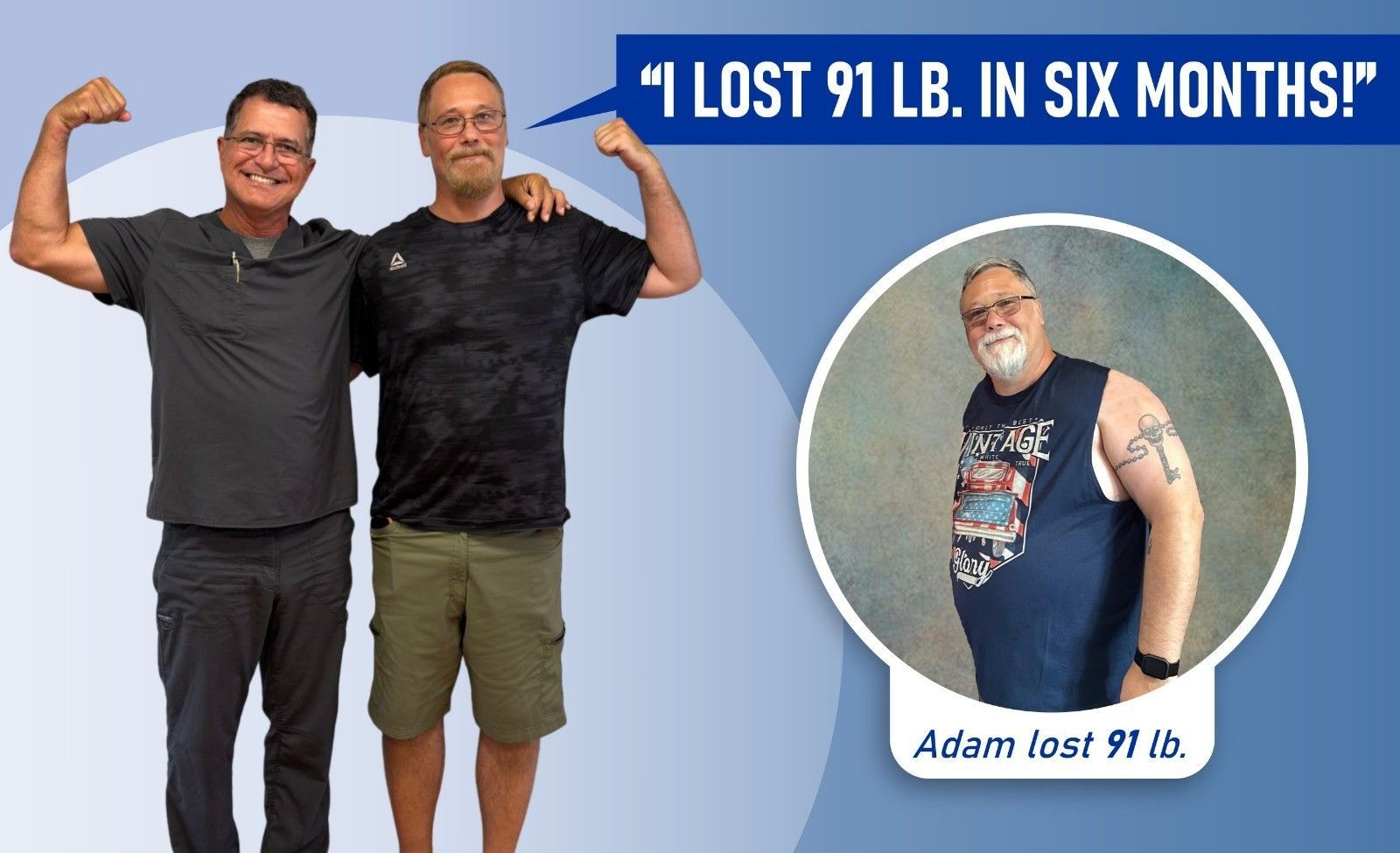Gastric Bypass in Jacksonville, Florida
Roux-En-Y Gastric Bypass Surgery
In gastric bypass surgery, your stomach and your small intestine are transected in 2 parts. The lower part of your intestine is then sutured into the small upper gastric pouch. The food will go into the “smaller” stomach and then into the lower part of your intestine. Consequently, the food will “bypass” the lower part of the stomach and upper portion of your small intestine. The surface area of absorption is therefore reduced significantly. As a result, gastric bypass surgery falls under a category of weight loss surgery called malabsorptive. You will absorb less what you eat and also essential multivitamins. You will require multiple vitamins and mineral replacement for the rest of your life.

List of Services
-
How gastric bypass surgery worksList Item 1
Roux-en-Y gastric bypass surgery uses a two-prong approach to maximize results:
First, the stomach is physically divided into two parts, a larger lower portion and a smaller upper “pouch” portion that is about the size of an egg. This pouch becomes your “new” stomach. Since it’s significantly smaller than your “normal” stomach, holding about an ounce of food, you’ll feel not as hungry sooner and for a longer period of time, decreasing your overall consumption of calories.
Next, the pouch is connected to the middle of small intestine, bypassing the upper portion where much of the digestive process occurs. This will prevent food from entering the upper portion of the small intestine, and the contact of bile and pancreatic enzymes that assist digestion of food. The consequence is the food absorption is significantly limited.
-
Benefits of Roux-en Y Gastric Bypass SurgeryList Item 2
Gastric bypass surgery offers several significant benefits:
- The larger portion of the stomach is not resected as in the sleeve gastrectomy
- It can be performed using a minimally invasive technique, which means faster healing and fewer complications
- It offers the potential for more weight loss compared to some other approaches
- There is no adjustments after surgery
Gastric bypass surgery can also reduce or treat other obesity-related health conditions, including:
- High blood pressure
- Gastroesophageal reflux disease (GERD)
- Sleep apnea
- Heart disease
- Type 2 diabetes
- Joint pain
-
Risks of Gastric Bypass Surgery
Gastric bypass surgery will induce a lifetime protein, vitamin, and some other minerals and nutrients malabsorption. It will require a lifetime monitoring and supplementation of those elements. It may cause vitamin or mineral deficiency, dehydration, low blood sugar, or gallstones in some patients. Gastric bypass surgery can cause dumping syndrome, which typically occurs after eating foods that is high in osmolality, such sugary foods or other foods that are hard to digest. Symptoms of dumping syndrome include:
- Increased heart rate
- Diarrhea
- Cramps
- Nausea
- Vomiting
To avoid dumping syndrome and other risks, follow the dietary and lifestyle guidelines prescribed by your doctor.
Dr. Baptista's Bariatric Center is recognized as a leading weight loss surgery center, offering world-class advanced surgical care using state-of-the-art technology in a comfortable, licensed facility.
Weight Loss Procedures
Patient Success Stories







